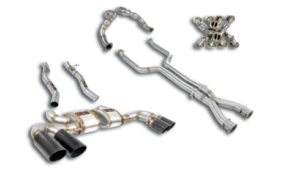Hydration plays a vital role in maintaining optimal health, affecting various aspects of our well-being. Here, we’ll discuss 30 points highlighting the pros and cons of staying adequately hydrated.
Pros:
- Physical Performance: Proper hydration improves physical performance and endurance.
- Temperature Regulation: It helps regulate body temperature, preventing overheating.
- Digestive Health: Hydration aids in digestion and prevents constipation.
- Detoxification: Adequate water intake assists the body in removing waste and toxins.
- Healthy Skin: Proper hydration contributes to healthy, glowing skin.
- Cognitive Function: It supports better concentration and cognitive function.
- Energy Boost: Staying hydrated increases energy levels.
- Joint Health: Hydration helps lubricate joints and reduces the risk of injury.
- Immune Function: Adequate water intake supports a strong immune system.
- Weight Management: Drinking water before meals can aid in weight control.
- Heart Health: It promotes good circulation and overall heart health.
- Kidney Function: Hydration supports proper kidney function and reduces the risk of kidney stones.
- Muscle Function: Well-hydrated muscles are less prone to cramps and injuries.
- Reduction of Headaches: Dehydration can trigger headaches, making hydration essential.
- Improved Mood: Staying hydrated can positively affect mood and reduce irritability.
- Appetite Regulation: It helps control appetite and prevent overeating.
- Blood Pressure Control: Adequate hydration can help maintain healthy blood pressure levels.
- Oral Health: Drinking water reduces the risk of oral health issues.
- Joint Pain Relief: Hydration can alleviate joint pain in some cases.
- Urinary Health: It reduces the risk of urinary tract infections.
- Aid in Digestion: Hydration supports the production of digestive enzymes.
- Balanced Electrolytes: Proper water intake maintains electrolyte balance.
- Faster Recovery: Hydration accelerates post-exercise recovery.
- Reduced Heat-Related Illness: It prevents heat-related illnesses in hot conditions.
- Prevention of Dehydration: Adequate hydration prevents dehydration-related complications.
- Pregnancy Health: Pregnant women need proper hydration for fetal development.
- Cancer Risk Reduction: Hydration may reduce the risk of certain cancers.
- Dental Health: Drinking water with fluoride promotes dental health.
- Better Nutrient Absorption: Water aids in the absorption of nutrients from food.
- Longevity: Adequate hydration contributes to overall longevity and well-being.
Cons:
- Overhydration: Drinking excessive water can lead to water intoxication.
- Inconvenience: Frequent bathroom trips can disrupt daily routines.
- Taste Preferences: Some may not enjoy the taste of plain water.
- Time-Consuming: Drinking enough water throughout the day can be time-consuming.
- Social Pressure: Peer pressure may discourage regular water intake in social situations.
- Cultural Differences: Beliefs about hydration can vary across cultures.
- Misinformation: Misleading or contradictory advice on water intake.
- Inertia: Resistance to change and adopting better hydration habits.
- Lack of Awareness: Many people lack information about the importance of hydration.
- Financial Cost: Buying bottled water or specialized hydration products can be expensive.
- Lifestyle Conflicts: Balancing hydration with other responsibilities.
- Distractions: Difficulty remembering to drink water due to external distractions.
- Lack of Access: Limited access to clean drinking water.
- Privacy Concerns: Worries about privacy when hydrating in public.
- Overwhelm: The multitude of hydration advice and products can be overwhelming.
- Fear of Missing Out: The fear of missing out on social activities due to hydration needs.
- Social Isolation: Isolation due to differences in hydration habits.
- Resistance to Change: A reluctance to make necessary lifestyle changes.
- Unrealistic Expectations: Expecting immediate and significant benefits from improved hydration.
- Inconsistent Support: Limited or inconsistent support from others.
- Health Conditions: Certain medical conditions may require specialized hydration plans.
- Adherence Challenges: Sticking to a consistent hydration routine can be difficult.
- Emotional Eating: Emotional factors can disrupt hydration habits.
- Fear of Failure: A fear that better hydration habits will not yield expected results.
- Inconsistent Effort: Failing to maintain a consistent hydration routine.
- Medication Interactions: Some medications may affect hydration needs.
- Complexity: Understanding and implementing proper hydration practices.
- Health Myths: Belief in hydration myths that may not be accurate.
- Complex Techniques: Some hydration practices may seem complex or intimidating.
- Skepticism: Some individuals may doubt the effectiveness of proper hydration.
In conclusion, staying adequately hydrated is crucial for overall health, but it also comes with challenges and potential barriers. It’s important to prioritize hydration, establish a balanced routine, and customize your water intake to your unique needs and circumstances.




























+ There are no comments
Add yours